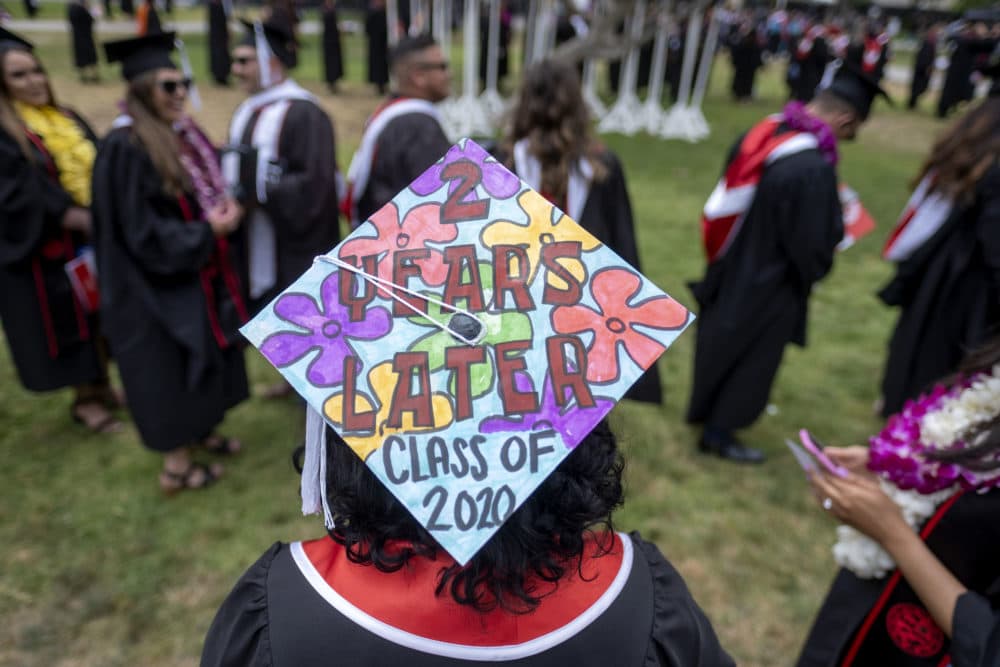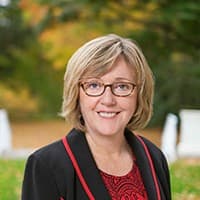Advertisement
Commentary
How to live with uncertainty

On my campus this spring, we hosted the first two-year reunion in our history. We welcomed back the Class of 2020, seniors when we sent them home in March 2020 as fear of COVID-19 gripped the nation and the world.
The Class of 2020 missed many milestones — senior tea, baccalaureate, commencement and more. As the class marched across the stage last month, older alumnae, including five who were celebrating their 75th reunion, openly wept with joy for these young people.
So much has been written about the uncertainty that accompanied the pandemic. In my address, I told the Class of 2020 that uncertainty is part of the human condition.
We humans are hardwired to avoid uncertainty. There are now a series of psychological studies that have documented what at first might seem counterintuitive. Participants in lab studies experience less anxiety when they receive continuous mild shocks versus random mild shocks. In other words, certain shock is preferable to uncertain shock, even though it means more pain in the long run — that is how much we hate uncertainty.
As the class marched across the stage last month, older alumnae ... openly wept with joy for these young people.
Our preference for certainty evolved to help us avoid danger, and as such, it is adaptive. Our brains want us to survive, and so we search for a predictable, safe future. To reach this objective, we do our best to anticipate risks, so we can avoid them. For example, we look both ways before crossing the street, we cover electric outlets when there is a toddler in the house and we get annual physical exams.
Yet, we know many risks are outside of our control, as this two-line poem by Emily Dickinson makes clear. Dickinson asks:
In this short Life that only lasts an hour
How much — how little — is within our power
The first line grabs the reader’s attention. From a young age — as early as 4 —we are aware that death awaits us all. Still, Dickinson’s poem is jarring as she reminds us that life seems to pass in an instant.
Whenever we face our own mortality, we seek to know the unknowable. For example, people facing a difficult diagnosis want to know what the future holds; so do their loved ones.
So we love, even though we know we will sometimes lose the ones we love.
Several years ago, a good friend of mine found herself in this exact predicament after learning that she had breast cancer. In an essay about her experience, she wrote that she did not allow her illness to define her. My friend knew she could not control the outcome of her illness; however, she came to realize that she could control her response to it. This is the answer to Dickinson’s question, how much is within our power? We can control quite a bit actually; we can control how we respond to uncertainty.
Pema Chödrön, a Buddhist teacher and author, encourages us to welcome uncertainty because for her “not knowing is part of the adventure.” When I first read her words, I remember thinking that viewing not-knowing as an adventure is a tall order. Yet, as hard as it is, we must face the fact that we cannot always feel safe, comfortable or secure about the future.
Throughout our lives, we will struggle with uncertainty because the essentials of human existence will include difficult and challenging events and circumstances. The poet David Whyte’s counsel is “to stay close to the way we are made.” He views the acceptance of our humanity — with all its hardships — as a courageous act.
Advertisement
So we love, even though we know we will sometimes lose the ones we love. We take risks, even though we know we will sometimes fail. We pray, even though it sometimes seems as though our prayers are not answered.
A challenge we all share throughout our lives — not only during a pandemic — is to find the courage to embrace uncertainty and to move forward.
If we can accept the fact that living with uncertainty is part of the adventure, however hard this may be, perhaps we can lessen the shocks along the way.
And yet, there are some magnificent certainties in this life. I decided to leave the Class of 2020 with three truisms: As the song goes, love is all you need; meaningful work gives life meaning, and a college education lasts a lifetime. These three lessons resonated with them.
I also gave the Class of 2020 an opportunity to experience one more milestone moment. On our campus, there is a tradition called “primal scream” that occurs the night before final exams begin, when students gather together to give voice, literally, to their unrestrained frustrations. Last month, I invited the alumnae to give the primal scream they'd missed. The Class of 2020 let out an exuberant yawp that would have made Walt Whitman proud.
